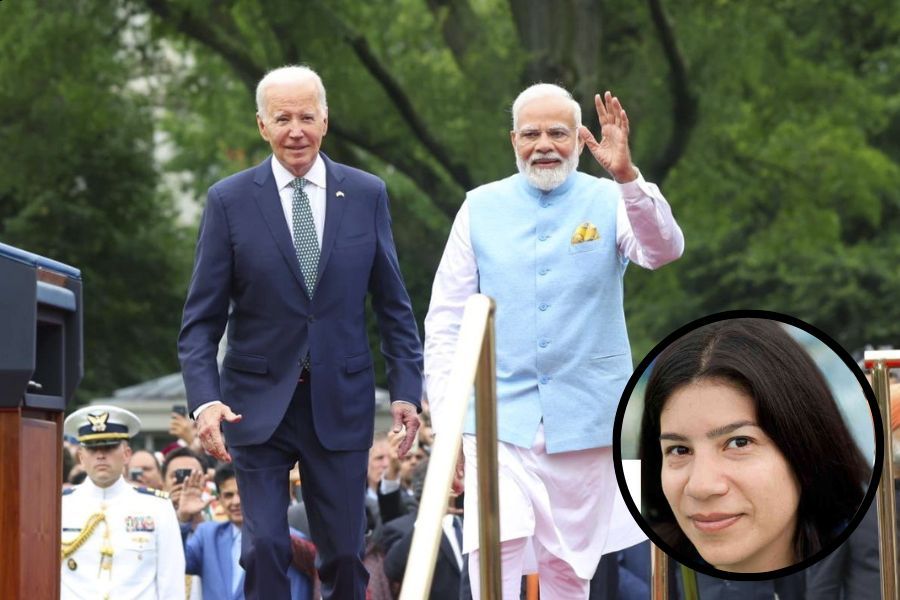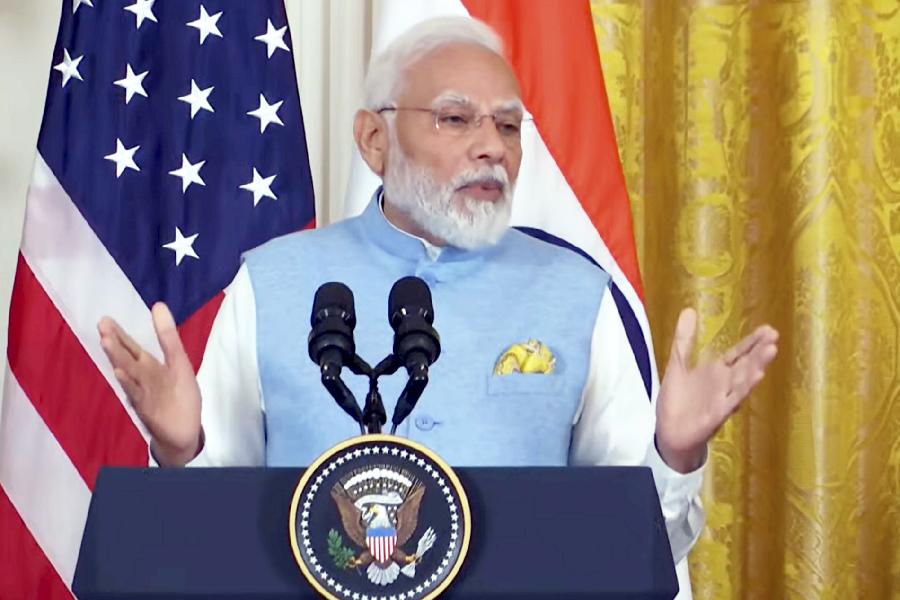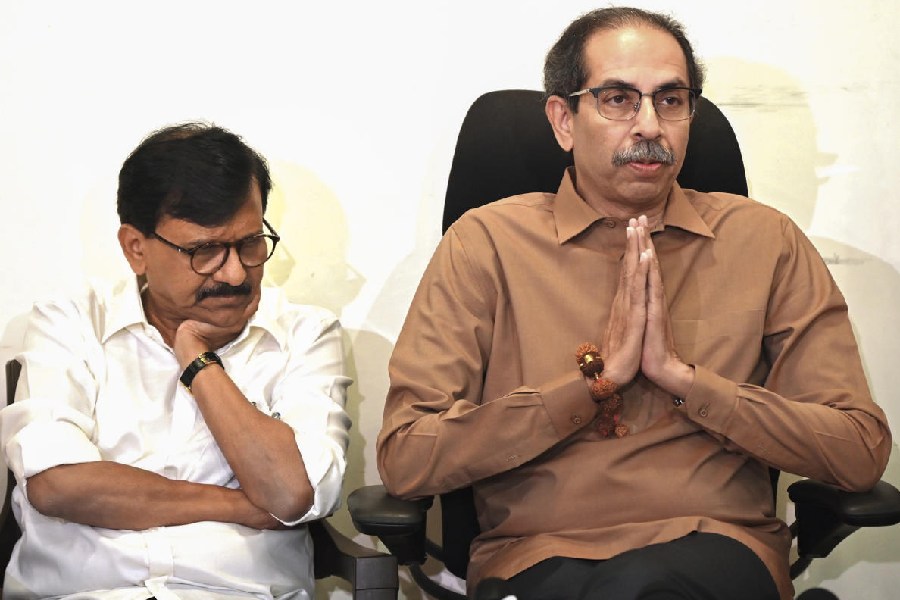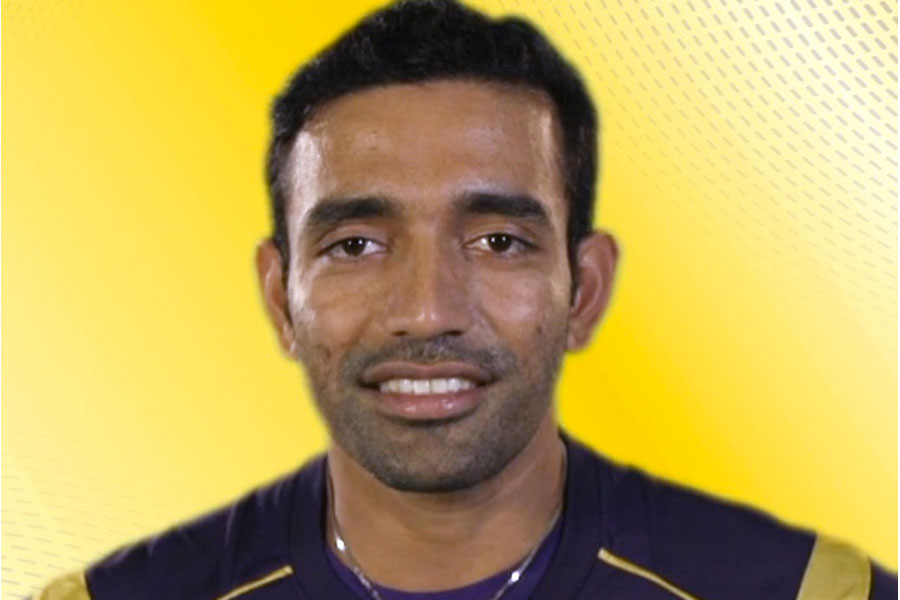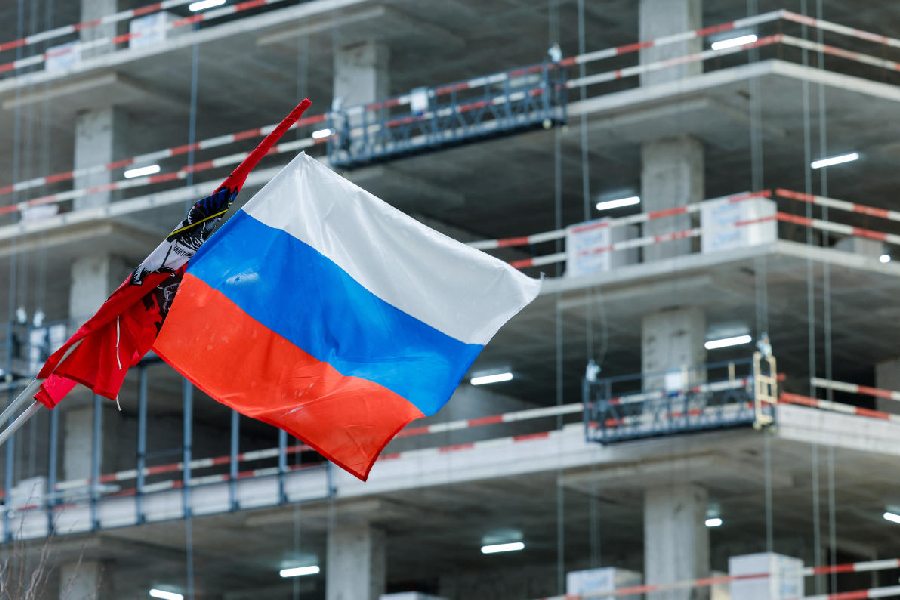Harvard history professor Maya Jasanoff has warned that the US attempting to rope in Narendra Modi’s India as an ally in the cold war against China could spell doom for the global project of freedom.
In a guest essay in the opinion section of The New York Times on Thursday, Jasanoff accused Prime Minister Modi of “presiding over the nation’s broadest assault on democracy, civil society and minority rights in at least 40 years”.
Jasanoff, a celebrated historian of the British Empire who recently wrote a deeply critical obituary of Queen Elizabeth, is the daughter of Indian-American social scientist Sheila Sen Jasanoff, who grew up in Ballygunge.
Maya Jasanoff wrote: “A state dinner and Mr Modi’s address to a joint session of Congress will crown months of fawning assessments of India by everyone from Bill Gates to commerce secretary Gina Raimondo. The message couldn’t be plainer: In Cold War II with China, the United States wants India on its side…. The outreach to Mr Modi — the democratically elected leader of the world’s most populous nation, with polling favourability numbers recent American Presidents can only dream of — appears, superficially, to make good diplomatic sense.”
She added: “But here is what Americans need to know about Mr Modi’s India. Armed with a sharp-edged doctrine of Hindu nationalism, Mr Modi has presided over the nation’s broadest assault on democracy, civil society and minority rights in at least 40 years. He has delivered prosperity and national pride to some, and authoritarianism and repression of many others that should disturb us all.”
Citing India’s fall on multiple global indices of freedom, democracy, free press and academic freedom, Jasanoff pointed out: “A working paper from the Indian government dismisses such metrics as ‘perception-based’.
“Sadly, it is no ‘perception’ that the government systematically harasses its critics by raiding the offices of think tanks, NGOs and media organisations, restricting freedom of entry and exit, and pressing nuisance lawsuits — most conspicuously against the Opposition leader Rahul Gandhi, who was recently ejected from Parliament after his conviction on a ludicrous charge of having defamed everybody named ‘Modi’.
“It is no ‘perception’ that Muslim history has been torn from national textbooks, cities with Islamic eponyms renamed and India’s only Muslim-majority state, Jammu and Kashmir, stripped of its autonomy,” Jasanoff said.
“Western commentators enthusing about the ‘new India’ tend to breeze past such outrages as distractions from India’s economic growth and investment potential. But here too are troubling indicators. The share of women in the formal workforce stands at around a paltry 20 per cent and has shrunk during Mr Modi’s tenure. The share of wealth held by the top 1 per cent has grown since he took office and is now 40.5 per cent, thanks to crony capitalism resembling the Russian oligarchy’s. Unemployment is rising, the cost of basic food is surging, and government investment in health care is stagnating. As for India’s readiness to partner on efforts to combat climate change — one of the Biden administration’s highest hopes — the Indian government has cracked down on climate activists and just removed evolution and the periodic table from the curriculum for under-16-year-olds in its ongoing assault on science,” Jasanoff added.
“In Edison, NJ (New Jersey), marchers in the annual India Day parade last August drove a wheel loader, which resembles a bulldozer, bedecked with images of Mr Modi and a far-Right Indian government minister (Uttar Pradesh chief minister Yogi Adityanath) who has ordered the razing of Muslims’ homes and businesses, rendering such vehicles symbols of hate as provocative as a noose or a burning cross at a Klan rally. At Google, upper-caste Hindus tendentiously invoked ‘Hinduphobia’ to rescind a speaking invitation to a Dalit activist, Thenmozhi Soundararajan, accusing her of hate speech.... Across America there are now more than 200 chapters of the overseas arm of India’s fascist-inspired Hindu nationalist paramilitary organisation, the Rashtriya Swayamsevak Sangh, or RSS, of which Mr Modi is a longtime associate.
“...The invitation to Mr Modi, diplomats may say, is not intended to celebrate him or his regime but to strengthen important ties between two nations and their citizens at a critical geopolitical moment.
“But let’s not kid ourselves. Mr Modi — who before he became Prime Minister was denied a visa to the United States for allegedly condoning a massacre of Muslims in 2002 — has made himself the face of his nation, smiling benignly from billboards at every traffic circle, the sides of bus stops, the home pages of countless websites. We can be sure the photo-ops with Washington dignitaries will figure prominently in his re-election campaign next year. Far less certain is whether Mr Modi will deliver the kind of strategic or economic partnership Washington is seeking.”
Drawing parallels between Donald Trump’s US and Modi’s India, Jasanoff prescribed a path of higher morality from the US to engage with India.
“US news organisations and research institutions must continue to support vital fact-finding and reporting, to counter Indian government propaganda and misinformation about everything from humanitarian abuses to Covid mortality figures. Companies seeking to do business in India should insist their partners uphold shared values and practices of non-discrimination. Silicon Valley can do better at pushing back against India’s increasingly autocratic digital policy, to say nothing of standing up to censorship requests — which Twitter notoriously failed to do with respect to a recent BBC documentary critical of Mr Modi.
“US legislators should pass bills to make caste a protected category and educate themselves enough to avoid the error made recently by the Illinois General Assembly when it set up an Indian American Advisory Council using terms that offensively marginalised Muslims. Employers should recognise that appeals to Hindu identity and ‘Hinduphobia’ may themselves be rooted in anti-minority and casteist campaigns.
“We should hold India up as a mirror to the United States — whose own abundant problems make it easy for Mr Modi’s legions of supporters to accuse his critics of hypocrisy, racism and neocolonialism. It’s common to look to the history of European fascism for parallels with democratic breakdown in the United States in recent years, but India offers a troubling guide to how authoritarianism can sabotage a multiethnic democracy in the Internet age…. But as the President of one stumbling democracy joins hands with a Prime Minister bent on hobbling another, the project of global freedom seems one step closer to collapse.”

